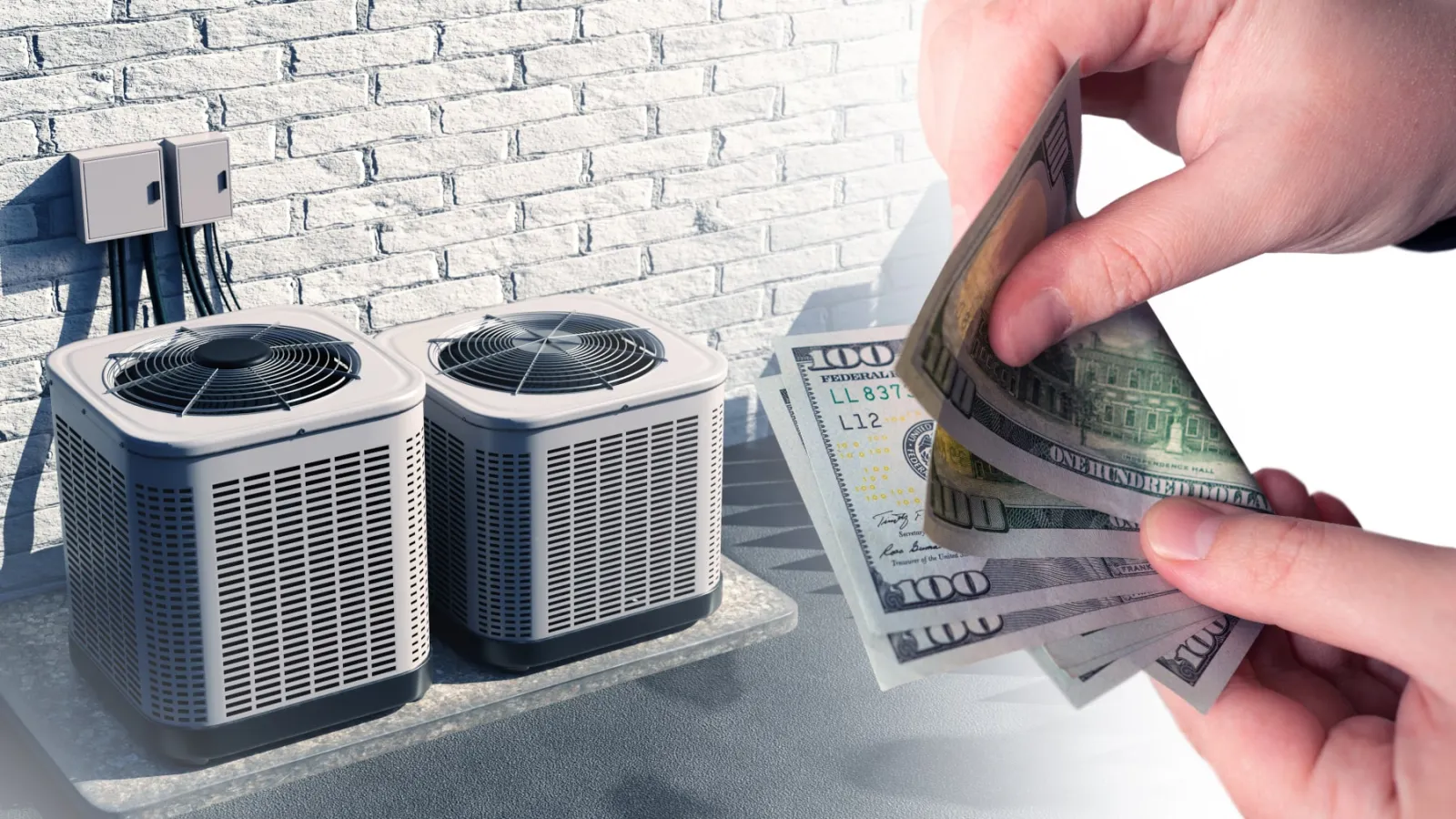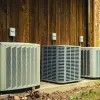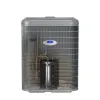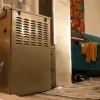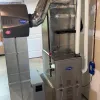If you're replacing a central air conditioning system, you want to know how much it costs.
As you may know from previous AC replacement rodeos, the cost can vary by a lot! Different contractors quote different amounts. And one contractor might be recommending a different system from the other ones.
How can you possibly know which system to select—or how much to pay?
In this article, we'll do a deep dive into the cost to replace a central air conditioner. We'll also consider factors that affect the cost of HVAC equipment and what you should expect from your contractor when purchasing a new system.
Factors that impact air conditioner cost
Before looking at any hard numbers—and we definitely will be considering prices—it's important to understand all of the factors that influence the price of a new central air conditioner.
Just because your neighbor got their new AC for a certain price doesn't mean yours will be the same price.
All houses are different. Even houses in the same neighborhoods are different sizes, have different sun exposures, and were built by different contractors. As a result, two houses on the same street might have better or worse insulation, more or less shade to reduce heat gain, and so on.
Also: Different homeowners can have vastly different priorities when it comes to air conditioner purchases. For example, one homeowner might want the cheapest system available while the other wants the most efficient system. These preferences affect the price of the new AC!
With all of that in mind, here's a comprehensive list of factors that influence the cost of a new central air conditioning system:
- Cooling capacity/size: How much cooling capacity do you need? A 2-ton unit? A 5-ton unit? Different sizes have different costs.
- Efficiency rating: Do you want a more efficient AC? High efficiency equipment usually costs more than standard equipment, although that often isn't the case for customers who purchase systems that are eligible for energy efficiency rebates.
- Unit type: Is it a conventional split system or a packaged unit?
- Compressor type: Does the system have a single stage, two stage, or variable speed compressor? Variable speed compressors offer better comfort and efficiency than standard, single stage systems.
- Installation specifics: Are there any unusual installation challenges involved? For example, are there space constraints that make it particularly difficult to install the system you want?
- Ductwork upgrades: Is the existing ductwork damaged or installed in a way that restricts airflow? New ductwork might be needed for your system to perform to manufacturer specifications.
- Electrical/wiring modifications: Will you need wiring upgrades to accommodate the type of system you're buying? This is often the case for people purchasing heat pump systems.
- Lineset size: New systems might require new linesets, which could increase the cost of the installation.
Wow, that's a lot of variables! Generally speaking, the more efficient the system and the more involved the installation procedure, the higher the cost.
Ultimately, it's just as common to pay a price at the higher end of the range we provide in this article as it is to pay a price at the lower end.
It all depends on what kind of system your home needs and what your priorities are.
Cost to replace a central AC alone
If you're only replacing a central air conditioner, the cost is typically anywhere from $6,000 to $14,000.
Note that this is the cost if you're not replacing your furnace at the same time you replace the AC. In other words, you're just replacing the air conditioning unit.
In many cases, it's a good idea to replace the furnace at the same time as the AC because:
- The furnace is usually the same age as the AC and is likely due for replacement as well.
- You'll save on labor costs by replacing both units at once.
- The blower fan needs to be compatible with the new AC, and your old furnace fan might not be.
That being said, some people have air conditioners and furnaces that are different ages and are, therefore, on separate replacement schedules. If that's you, then the range of prices above is what you can expect to pay.
We realize the high end of that range is double the cost of the low end. That's because installation of a single stage AC with no significant duct modifications involved will cost much less than installing a variable speed unit and replacing all of the ductwork.
Cost replace a complete HVAC system
If you're replacing an air conditioner and furnace or installing a heat pump, the cost will be:
- $10,000 to $15,000 for a standard system
- $15,000 to $25,000 for a variable speed system
When we talk about "standard" systems, we're talking about basic on/off air conditioners. They turn on when the indoor temperature exceeds your thermostat setting and turn off when the thermostat setting is satisfied. It's what you're probably used to.
Variable speed systems, on the other hand, run at low speeds nearly all the time and ramp up to meet your exact cooling needs as required. The result is a more comfortable, drier home with consistent temperatures.
Variable speed units also use way less energy, so you can factor your monthly savings into the long-term cost.
At the time of writing, most Atlanta-area homeowners qualify for at least one of Georgia's energy rebate programs. These programs can help you save thousands off the typical cost of a new, energy efficient air conditioner or heat pump!
What should you expect from a contractor when replacing your AC?
Contractors should charge a fair price for their work. Of course, that work should include a lot of pre and post-installation tasks that ensure you get exactly the AC you need for your home!
What do we mean by pre and post-installation tasks? Here are a few that you absolutely must insist on when getting a new AC:
- Detailed consultation to learn about your needs and preferences
- Manual J load calculation to determine the proper size for your new central air conditioning system
- Options for different compressor types and SEER2 efficiency ratings for the unit
- Transparency about all services to be performed, including new ductwork installation and, when applicable, wiring upgrades
- Post-installation quality control audit to ensure the new AC is providing optimal performance and keeping you comfortable
The Manual J load calculation, in particular, is super important.
Most contractors won't perform one, but they should!
It's a series of exercises and measurements that we use to determine the proper size for a new HVAC system. Since most companies don't bother with it, lots of homeowners end up with oversized systems that fail to keep them comfortable.
That's the opposite of what you want! So always insist that your contractor perform a load calculation.
Conclusion: An array of factors influences the cost of a central air conditioning system
To get the system you want at a fair price and feel 100% confident in the quality of the installation, it's essential to find a contractor you can trust.
If you live in Metro Atlanta and are considering replacing your air conditioner, give PV Heating, Cooling & Plumbing a call! Our experienced team provides comprehensive central air conditioning system installations all across the region.
Call us today at (404) 798-9672 or schedule a consultation online now!
